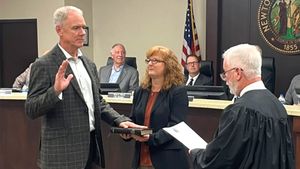Since I was laid off January 1, I have struggled to be able to pay my bills. This is not an uncommon situation for those of use living with HIV, this struggle to pay bills. And underemployment is also an issue.
Realizing I was facing shut off of my electricity and water earlier this month I contacted the utility to make payment arrangements. I offered to empty my bank account and put that on the bill to reduce the past due amount. Unfortunately, what I had in my account was not enough to cover the payment the utility wanted. That's when I reached for the medical necessity options.
Under federal law, all of us living with HIV are disabled under the Americans with Disabilities Act.
It should be noted, by the way, the waiver doesn't prohibit a shut off in medical necessity situations, it delays the shut off giving the customer time to pay the bill.
I brought up the medical issues that loss of electricity or water would cause for me. The customer service representative said I just needed to fill out a simple form and have it signed by my doctor. I pulled the document up on the internet and it became apparent to me that this form could ultimately reveal my HIV status.
Now, I don't necessarily care that others know I am HIV-positive. I have been out about it since 2008. But I am more than abundantly clear about the stigma and subsequent silence surrounding the disease. I am keenly aware how that stigma plays out for folks who are infected but do not have the privileges that I have. I am very lucky indeed to have social support. I don't have to hide my infection for fear of violence, eviction, or harassment. So the idea that my local utility — which has been under signficant scrutiny for what can only be classified as a bumbled response to massive winter storms last December — would have this information on any of us concerned me greatly.
I asked the customer service representative how this private medical information would be stored and used. The representative said it would be filed like everything else. I asked who had access, and the representative was unsure. I asked what policies the utility had in place to protect that heath information as protected health information. I was told there were no policies.
I reached out the cutomer service director at the utility and within a few hours had a very fruitful conversation with him. There had never been a fully thought out process to medical necessity waivers. The customer service director heard my concerns, and acknowledged they were legitimate concerns.
As a result, the utility is now revamping its entire medical necessity process. The new process will require only a note from a physician noting loss of electricity or water would have an impact on the customer's health. No need for a diagnosis. No need for a list of medically necessary equipment. A note with a doctor's signature is all that will be necessary.
So, for those of you are struggling with those bills out there, check out the medical necessity waivers — but tread carefully, your privacy could be at risk. When considering these programs ask the following questions:
1. Are any documents that are being used requiring a disclosure of your medical conditions? If so, that's a red flag.
2. Ask the program administrator how that information is stored and what policies are in place to protect your medical privacy. Who has access to the document? How is it used?
3. Why does the utility need a diagnosis or list of equipment?
4. Do they have a medical doctor on staff to review these requests? If not, then what are the qualifications of the employees who authorize medical waivers and what are the criteria?












































































